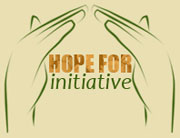
Last week, I attended the International Conference on the HOPEFOR Initiative hosted in Doha by the State of Qatar with the support of the governments of Turkey and the Dominican Republic. The HOPEFOR initiative was launched by the Prime Minister and Foreign Minister of Qatar in June 2010, with support from the International Peace Institute.
The conference was subtitled, “Improving the Effectiveness and Coordination of Military and Civil Defence Assets for Natural Disaster Response.” Foreign military and civil defense assets (MCDA) have increasingly been used in the recent past to support humanitarian efforts and assist countries affected by major natural disasters, as seen during the 2004 Indian Ocean tsunami and the January 2010 earthquake in Haiti. Although foreign MCDA’s contribution to such relief efforts is undeniable, recent experiences have shown insufficiencies and gaps in coordination with both humanitarian actors and affected state’s authorities.
The HOPEFOR initiative aims to initiate a discussion to address these gaps and ensure that MCDA are used in an appropriate, effective and coordinated manner, in support to the emergency response system and in accordance with the existing regulations and guidelines, notably the 1994 Oslo Guidelines.
The Doha International Conference firmly brought back on the international agenda the issue of civil-military coordination in relief operations and, incidentally, it helped in strengthening the Oslo Guidelines—criticized by some quarters as not inclusive enough—by putting them at the centre of discussions. In addition, the conference contributed in a modest way to building a bridge between mostly Western “traditional” donors and the global South in creating a more inclusive global emergency response system.
The conference brought together a variety of states from all continents. “Traditional” humanitarian donors—mostly Western developed states who are usually shaping the humanitarian agenda—sat side by side with representatives from emerging powers and from countries recipient of humanitarian aid. “Traditional” donors took more of a back seat in a discussion led by Qatar, Turkey, and Dominican Republic. In that sense, the Doha conference was an important milestone toward a global humanitarian system where the “South” participates and contributes on an equal footing with the “North” in defining and implementing humanitarian responses.
The conference participants—representing over seventy countries and about twenty intergovernmental and non-governmental organizations—discussed ways to improve shared understanding and communication between military and humanitarian actors in emergency contexts, where these two groups are increasingly required to work together. In particular, the participants:
• agreed on the importance of a bottom-up approach to enhance the international relief system, consisting of building up and strengthening the capacity of existing national, sub-regional, and regional response mechanisms, and better linking them up in order to share best practices and lessons learned;
• recognized existing institutional frameworks, notably the central role of the UN Office for the Coordination of Humanitarian Affairs (OCHA) in coordinating relief efforts, and the importance of a principled, civilian-led, humanitarian assistance;
• discussed concrete ways to further strengthen civil-military coordination by improving cross-cultural understanding between military and humanitarian actors through regular trainings and exercises, and by better capitalizing on past experiences through the development and dissemination across regions of lessons-learned studies, operational procedures, and doctrines;
• explored ways to establish a global network of humanitarian and military personnel from both assisting and affected states, which would build on existing institutional frameworks, and welcomed the proposed creation of a civil-military center of excellence in Doha.
The conference’s recommendations, which reflect the content of the discussions summarized above, will be submitted to the UN General Assembly that previously took note of the HOPEFOR initiative in its resolution 65/307 in July 2011. The three organizing states committed to further regional meetings and workshops to continue consultations, and Turkey publicly announced its intention to organize a follow-up conference in 2012.




